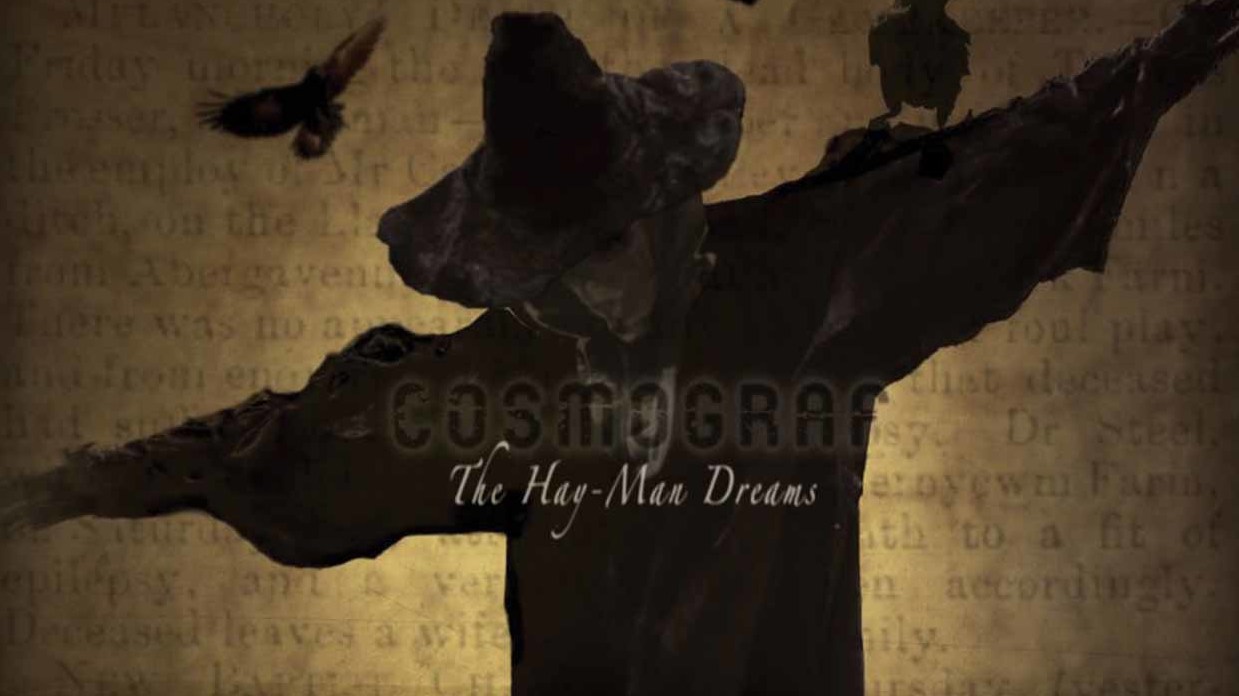Robin Armstrong, in his Cosmograf guise, has taken a perhaps unexpected turn with The Hay-Man Dreams. Where recent collections have been built around broadly science/science-fiction and metaphysical themes, this sixth album is considerably earthier in both narrative and execution.
Told via a series of vignettes as experienced or witnessed by the titular scarecrow, we’re presented with tales of impossible yearnings, the pace and turn of rural life, the encroachment of modernity, and mysterious deaths. Armstrong has said that there is a unifying story arc underlying the album, based on research into his own family history, but it must be said this isn’t immediately obvious.
Reflecting the bucolic and sombre inclinations of the subject matter, the music is almost uniformly slow, languid and downbeat, with distinctly folky and blues textures to tracks like Trouble In The Forest, Cut The Corn and large sections of the title track. Opener Tethered And Bound starts with what might well be a cheeky nod to the synthesised lawnmower intro to Genesis’ classic I Know What I Like and settles into a vaguely middle-era Floyd feel. Even when the intensity builds, as it does in Tethered And Bound, The Motorway and towards the majestic end of the almost 13 minutes of Hay-Man, for instance, it does so with a decidedly early 70s classic rock lope.
In another break from past Cosmograf releases, Armstrong has also scaled down the list of guest contributors, taking care of the vast majority of instrumentation himself, which underscores his wide-ranging talents on guitar, keyboards and bass – check out the acoustic guitar solo in Cut The Corn, the solo from Hay-Man, the achingly tasteful piano in Melancholy Death Of A Gamekeeper, and the athletic basslines in The Motorway for prime examples. Drums are courtesy of new collaborator Kyle Fenton and there are additional vocals from Rachael Hawnt, including a fantastic, breathy, soulful turn on Hay-Man. The inimitable Matt Stevens’ guitar appears on Trouble In The Forest, Rachel Hall adds beautifully emotive violin to the denouement of Hay-Man, and ex-BBC continuity announcer David Allan provides spoken-word interjections at various points.
The Hay-Man Dreams isn’t the easiest album to engage with immediately – there’s a certain ennui pervading much of it, which is perhaps entirely deliberate, emphasising the sorry isolation and impotence of the Hay-Man – so repeated listening is almost demanded. There is drama and poignancy here, alongside considered and richly layered instrumentation, but existing Cosmograf fans should be advised of a definite shift in pace and tone.
